The Anoxic Washed lot from Shyira ran after the Anoxic Natural, starting on 03/04/2024 with the final batch roasted on 15/05/2024.
The Shyira washing station produces what we consider to be some of the best coffees coming out of Rwanda - extremely high altitude farms and precise processing combine to produce superlative results.
This lot was processed using an innovative process developed by Raw Material that allows for low-cost extended fermentations in hot tropical climates - adapting to existing washing station infrastructure rather than requiring new equipment. This is the second of two anoxic lots from Shyira we’ve contracted, and it’s a delight.
Brew Guide:
Best Brewed with: Filter
We're roasting this beautiful clean and bright coffee very light to best preserve the delicate aromatics and acidity that show in this high grown washed lot. Give this coffee extra rest before brewing, and feel free to push extraction harder - it can take it
Best Rested: 3-4 weeks before brewing
Filter: 58g/L to 62g/L, 99c Water
Espresso: 18g, 48g, 26-30s (we prefer closer to a turbo-shot with this coffee)
We’re tasting: Very sweet and juicy aromatics that remind us of vanilla & apricot danish. In the cup, we’re finding flavours of ripe apricot, poached rhubarb, vanilla custard, and floral white flowers. Soft classic Rwandan notes of black tea and yellow plum add to the finish as it cools
Traceability:
Country of Origin: |
Rwanda |
Region: |
Nyabihu District, Northern Province |
CWS: |
Shyira |
Producer: |
765 Private smallholder farmers selling cherry to Shyira, Muraho Trading Company |
Variety: |
Red Bourbon |
Elevation: |
Station: 1850 MASL. Smallholder farms: 2000-2400 MASL |
Process: |
Anoxic Washed: Cherries floated & underripes skimmed, placed in a clean tank with a plastic sheet on top, which is then weighed down with cold water. This “water pillow” fermentation weight allows for an extended 48hr anoxic ferment with temperature control. Post ferment, the cherry is pulped, and the parchment is run through grading channels to both seperate by density and scrub off mucilage. Clean parchment dried on raised beds over 2-3 weeks. |
Import Partner: |
Raw Material |
The Story
Rwandan coffee holds a special place in our hearts - a unique and consistent flavour profile, and landing throughout winter with fresh crops when other East African greens might be starting to get a little tired - in this period, Rwanda and neighbouring Burundi get their time to shine.
Our link to Shyira, and all the Muraho Trading Company washing stations go way back - our co-founder Alex used to do the Raw Material sample dispatch and roasting as a small part of a previous role, back when the lab was centred in London. It was through this connection - roasting and cupping all the Rwandan samples, that he fell in love with coffees from Shyira - easily some of the consistently best coffees to come out of that country. It’s no lie to say that we’ve been excited for the arrival of fresh crop Rwanda since we launched, as we finally get the chance to put Shyira on the offer - and with that sense of eagerness, we’ve bought two lots that wonderfully espouse both the quality of coffee from Shyira, as well as Raw Material’s mission to return maximum value to producers.
Historically in the coffee industry, roasters were the primary beneficiary of value capture in the specialty coffee industry, benefiting significantly from the final product's sales and branding. This model often left coffee producers with limited financial gains and little incentive for sustainable practices. In contrast, emphasising value addition and capture (for example, through low-risk or low-cost experimental processing) at the producing side allows a producer or producer group to charge more for their coffee - capturing the market demand for differentiation. This shifts the focus towards higher compensation and sustainable development for farmers, enhancing both coffee quality and producer livelihoods.
With the development of experimental processing, and the demand for ever more novelty - it has now become a meme that buyers, baristas and roasters will all travel to farms and tell the producers who own and work the land “all the wonderful things they must do to improve their crops” - so that the gringo can buy at most a few sacks, or none at all if the experiment doesn’t pan out. In short, putting all the risk on the producer, where a single coffee harvest may represent a significant part of their yearly income.
Utterly breaking the mould, this Anoxic process comes from a global producer cross-pollination - from Colombia to Rwanda. The “water pillow” technique was developed by Miguel Fajardo, a farmer, agronomist, and Raw Material’s head of Quality in Colombia. One of the most exciting things about this technique is that it is low cost - it does not require purchasing expensive stainless steel tanks, or endless plastic barrels with air-locks. The use of clean plastic sheeting allows this technique to be adapted to existing infrastructure - the same tanks used to produce classic washed process coffees - allowing an extended fermentation with temperature control, with minimal capital investment. The profile produced is complex, wild and worth a premium, and to back that up we’ve bought both the washed anoxic and natural lots from Shyira.
One thing that sets Shyira’s quality apart from other stations is the altitudes of the farms that surround it - with some farms broaching a whopping 2400 MASL, the harvest can be somewhat delayed due to the cooler climes at altitude, with the best of Shyira arriving on later containers. When Gaudam and Karthick Anbalagan (the founders of the Muraho Trading Company, Raw Material’s in-country export partner) set up Shyira, the focus was always intended on the highest possible quality with a smaller station - the location is somewhat outside of the usual coffee production areas and less served by other washing stations. Nestled on a hillside abreast the Gicice river, the location and consistent output of Shyira is testament to the work that Muraho and Raw Material have put in
Smallholder farmers will deliver cherry to Shyira continually throughout the harvest period - bringing in sacks on the back of bicycles or carried by hand. Farmers are paid on the spot according to the weight and quality of cherry delivered, with a second premium paid once the coffee has been exported. Rather than favouring just those who happened to deliver cherry on the specific days that the anoxic lots were processed, the income from the higher value coffee is added to the collective second payment - ensuring all 765 farmers who deliver coffee to Shyira benefit, true maximum impact coffee.

![[16] Shyira Anoxic Washed [CROP 23/24 ARCHIVE]](http://scenery.coffee/cdn/shop/articles/rwanda_shyira_washed_shopify_2.png?v=1716543392&width=1100)
![Colombia - Quebraditas Ají Thermal Shock Washed [FESTIVE SPECIAL] 🎄](http://scenery.coffee/cdn/shop/files/colombia_quebraditas_aji_shopify.png?v=1764358600&width=533)
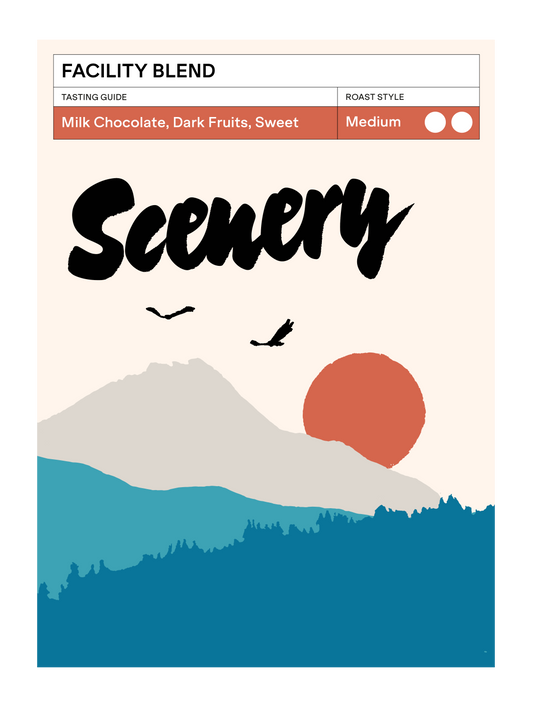
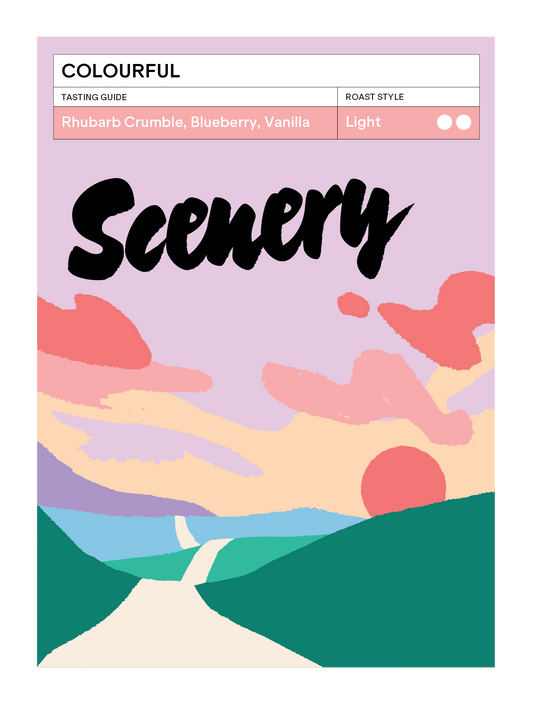
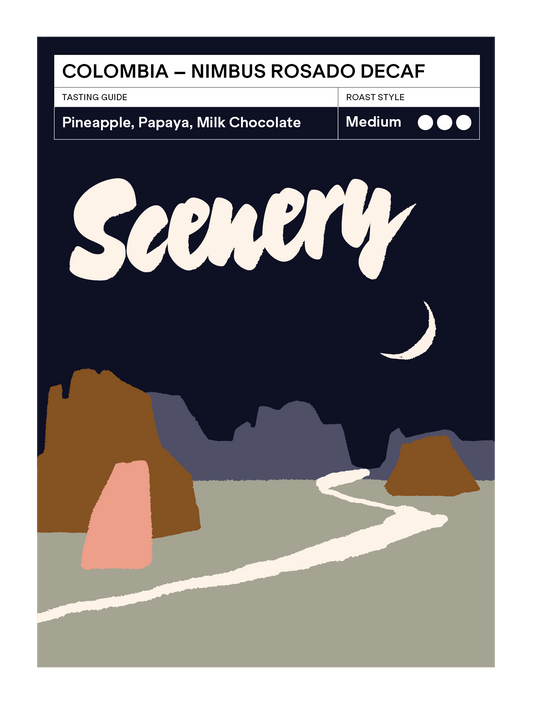

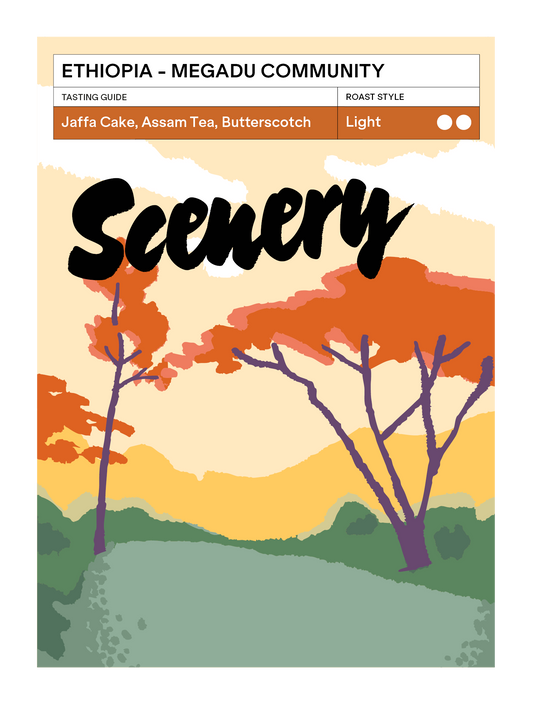

![Colombia - Quebraditas Sidra Thermal Shock Washed [25/26]](http://scenery.coffee/cdn/shop/files/colombia_quebraditas_sidra_2526_shopify.png?v=1765544630&width=533)



![Colombia - Luz Ángela's Chiroso [25/26]](http://scenery.coffee/cdn/shop/files/colombia_luz_angela_chiroso_2526_shopify.png?v=1764359755&width=533)

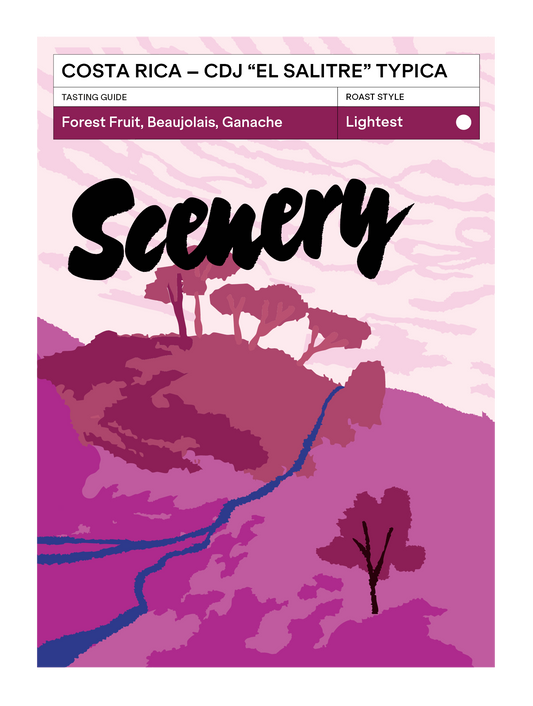
![Colombia - El Jaragual Rosado [25/26]](http://scenery.coffee/cdn/shop/files/el_jaragual_rosado_2526.png?v=1757075842&width=533)